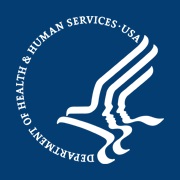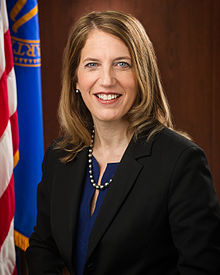HHS Pursues Higher Enrollment on Health Insurance Exchanges
Currently, 12.7 million people have enrolled in coverage plans through the state and federal health insurance exchanges.

- The Department of Health and Human Services (HHS) is pleased with the most recent enrollment numbers in the Affordable Care Act’s health insurance exchanges. Department of Health and Human Services Secretary Sylvia M. Burwell stated in early February that healthcare.gov is already moving forward with preparing for the next health insurance enrollment period, according to Kaiser Health News.

HHS is also pursuing other activities including developing ways to battle opioid abuse and President Barack Obama’s “Moonshot on Cancer” program. However, Burwell’s largest priorities include enrolling more uninsured individuals in health coverage through the health insurance exchanges, the news source reports.
Once the Supreme Court passed an optional clause when it comes to state Medicaid expansion, almost half of all states declined to invest in broadening their Medicaid programs. As such, HHS is bringing more focus on helping states expand their Medicaid coverage.
Medicaid coverage gap
The Affordable Care Act provides the funds necessary to broaden the program for several years and, afterward, will cover the majority of the financial investment necessary to continue state Medicaid expansion. Burwell is currently developing ways that new programs and waivers could help state governors expand insurance options to those who fall in the “coverage gap” created by the Supreme Court’s exception to make Medicaid expansion optional.
A report from the Henry J. Kaiser Family Foundation finds that the lack of Medicaid expansion allows for Medicaid-based health plans only for a family of three making $8,840 or less. These mandates do not encompass childless, single adults who are left without any Medicaid coverage within the states that did not expand the program.
The problem at hand is that there are a fair amount of people within these states who fall into a “coverage gap” and do not qualify for either tax credits through the health insurance exchanges or Medicaid health insurance. About three million people fall into this particular gap around the nation.
“Adults left in the coverage gap due to current state decisions not to expand Medicaid are spread across the states not expanding their Medicaid programs but are concentrated in states with the largest uninsured populations,” the report stated.
“More than a quarter of people in the coverage gap reside in Texas, which has both a large uninsured population and very limited Medicaid eligibility. Twenty percent live in Florida, eleven percent in Georgia, and eight percent in North Carolina. There are no uninsured adults in the coverage gap in Wisconsin because the state is providing Medicaid eligibility to adults up to the poverty level under a Medicaid waiver.”
How Texans are affected by lack of Medicaid expansion

When asked about ways the state of Texas can help families that are having difficulty with paying their medical bills, Marks responded, “They can expand Medicaid. That’s the short and easy answer. For those who are below 100 percent of the poverty level, they can’t get a subsidy in the marketplace so they are faced with nothing or paying 100 percent of the premium.”
“The people who have higher incomes are eligible for subsidies, but those with lower incomes are not. The Affordable Care Act was designed so that the lowest-income families would be covered by Medicaid. When the Supreme Court made [Medicaid expansion] optional, it meant that it was up to each state to make that decision.”
“Texas is one of an increasing minority of states that has not expanded Medicaid. For a significant number of Texans estimated to be a minimum of one million, there is nothing that will change for them outside of a Medicaid expansion.”
Marks continued to explain that about one million more Texans are now insured due to the plans offered on the health insurance exchanges and the premium subsidies offered through the provisions of the Affordable Care Act.
“There is a lot of consternation about high deductibles and narrow networks which are of concern, but you have to remember that we have about one million more people who have insurance over the last two years than previously,” clarified Marks.
“While there is a lot of room for improvement in the coverage they have, compared to no coverage, it’s a huge opportunity for many, many families,” Marks explained. “Much of the insurance data that came from HHS a week or so ago shows 1.1 million Texans [are enrolled] in marketplace plans and, obviously, those plans didn’t exist more than two years ago in the Texas individual market.”
“There was a very weak individual market in Texas before the Affordable Care Act. While one million of those who bought Marketplace plans in 2015 were not necessarily uninsured previously, a chunk of them were. The other thing that’s happened, not just in Texas but in the country, is that the economy has improved. When the economy improves, people generally have less trouble paying for a lot of things whether they’re insured or not insured.”
Americans still struggling to pay medical bills
A report from EHF and Rice University had found that fewer Texans had trouble paying their medical bills in 2015 than in 2013. However, a recent survey from the Henry J. Kaiser Family Foundation and The New York Times found that 20 percent of insured Americans are experiencing difficulty with their out-of-pocket healthcare costs.
“The fact that Texans had fewer problems paying their medical bills in 2015 is good news,” Vivian Ho, the chair in health economics at Rice’s Baker Institute and director of the institute’s Center for Health and Biosciences, said in a press release.
“One reason fewer Texans are having problems paying medical bills is because more Texans now have health insurance. However, one in five Texans still has problems affording health care. And it’s no surprise our data show the uninsured and those with lower incomes continue to struggle paying those bills more than anyone else.”
“What Kaiser reported is also true for Texas. Texans are still reporting difficulty in paying for health care. What we found is that they are reporting less difficulty than they had two years ago, but there are still challenges,” mentioned Marks. “The Kaiser data is true for Texas as well. Their data looked at a particular point in time – right now. Our report looked at a trend. What we’re excited about is that the trend is moving in the right direction. It doesn’t mean the problem is solved. It means that things are moving in the right direction.”
“It may be that things were so bad in Texas before that modest improvement looks magnificent. In states that did not have as many uninsured as Texas had before, complaining about out-of-pocket costs is almost a luxury that we can’t yet afford. We’re happy with getting to where other states were years ago. That is an improvement for us and we’re excited because it’s in the right direction,” Marks said.
HHS pushes forward health insurance enrollment
 HHS Secretary Burwell stated that “uncompensated care” is likely to bring more states, especially in the South, onboard with Medicaid expansion in the near future. Currently, 19 states have still refused to expand their Medicaid insurance options to those within the “coverage gap.”
HHS Secretary Burwell stated that “uncompensated care” is likely to bring more states, especially in the South, onboard with Medicaid expansion in the near future. Currently, 19 states have still refused to expand their Medicaid insurance options to those within the “coverage gap.”
Even though many have found that the deductibles have risen on the insurance plans offered through the health insurance exchanges, Burwell mentioned that many employer-sponsored health plans have also seen a rise in the deductible rates.
One of the biggest benefits of the Patient Protection and Affordable Care Act has been the mandate that individuals with pre-existing conditions are still eligible for health insurance. Additionally, the health law has positioned limits on out-of-pocket healthcare spending, Kaiser Health News reports.
When it comes to drug coverage among the elderly among other healthcare services, the Affordable Care Act prohibits “caps on annual or lifetime limits” as well as enable young adults under 26 years of age to continue healthcare coverage on their parents’ health insurance plans.
Despite the potential benefits of the Patient Protection and Affordable Care Act, Republican presidential candidates have stated their intent to repeal the healthcare law if elected into the White House. Additionally, the Republican-backed Senate and House of Representatives sent the Budget Reconciliation bill to President Barack Obama’s desk earlier this year in an effort to repeal major parts of the Affordable Care Act. However, President Obama vetoed the bill in order to preserve his signature healthcare law.
It seems that the Affordable Care Act’s health insurance exchanges, however, have had favorable results and been sought by the American people. This may be partially due to the individual mandate requiring Americans to have health insurance or else suffer a tax penalty, but obtaining healthcare access is often a vital part of any individual’s life.
Even if, miraculously, someone goes through life without illness, injury, or disease, children need immunizations early in life. As such, some healthcare coverage is a necessity among all American families and the Affordable Care Act allows for this.
Currently, 12.7 million people have enrolled in coverage plans through the state and federal health insurance exchanges, Burwell told the news source. More than 9.6 million enrolled through the healthcare.gov website operating in 37 states and 3.1 million people chose a plan through state-based health insurance marketplaces.
At this point, about 4 million people enrolled for health coverage for the first time in 2016 through the health insurance exchanges, HHS reports. There is still greater work to be done with regard to getting people enrolled in healthcare coverage per the provisions of the Affordable Care Act and more outreach is being completed at CVS stores and similar retail businesses.
“We’ve made a lot of progress [but] we know we have more to do,” Burwell told the source.
